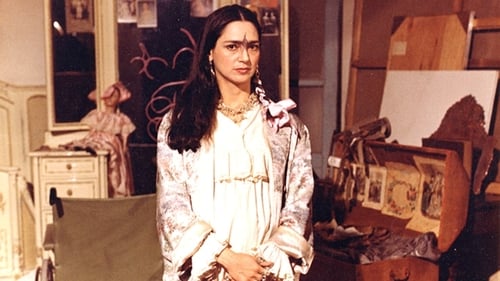
Abuelita
Valeria y Victoria, gemelas idénticas separadas al nacer, se reencontrarán en medio de una dramática situación que las llevará a intercambiar vidas permitiendo que Victoria pueda estar con su amante, mientras Valeria tendrá que tomar la vida que su hermana dejó junto a su esposo Carlos Daniel. Adaptación para cine en formato musical de la telenovela mexicana 'La usurpadora' (1998).

The world has woken up surprised by a massive catastrophe, the disappearance of millions of people who are apparently homosexual. Ale, a girl who was adopted by a same-sex family, is in danger, as the country's government is taking preventive measures in light of the event, and intends to return all the children who were adopted by these families to the orphanage where they came from.

Self (voice)
A compilation of 20 Mexican children's song, composed from 1850 to 1950, ranging from lyrical to surrealist, illustrated with digital animation.

Sofía
Bruno, a novelist with no luck goes to call for help from his love always sofia, who is in Veracruz desolate without knowing what to do with the corpse of her boyfriend who died because of a heart attack while they made love

Pilar Cervantes
Juan and Pilar return to Mexico City on the same train. Destiny cross their paths in a taxi stop, off the train station. A cab arrives and they take each other's baggage by mistake. After that, they spend two days looking for each other, trying to recover their stuff. In the meantime, Juan reads Pilar's diary and she listens to his thoughts recorded on tape. Love begins to grow between these two proper strangers.

Self
Award-Winning filmmaker Paul Leduc (Frida, Naturaleza Viva, Reed: Insurgent Mexico, Barroco) directed this gritty musical drama about life in the ghettos of Mexico City during the 1980s. With a soundtrack of Mexican rock music, the camera takes the viewer through the streets, to rock concerts, and to the bars and clubs, where he exposes the hunger, repression, unhealthy conditions and violence in the marginal communities of Mexico's capital city.

Frida's Sister
En su lecho de muerte, la pintora Frida Kahlo recuerda su vida. Por su mente y por la pantalla, desfilan los personajes y situaciones más significativos de su atormentada existencia

Siete presidiarias se escapan de la cárcel para encontrar un tesoro cuya localización les ha sido revelada por una anciana moribunda. Al llegar a la playa señalada las mujeres ven obstaculizado su propósito por la presencia de unos de excursionistas.

Mexican feature film

An actor from the provinces, a soap-opera star, reaches the big city with dreams of success. Partly through sincerity and partly prompted by an uneasy conscience, he wants to revolutionize the traditional photo-novel by linking it to social and political reality, to "bring social conscience to the masses" by utilizing this traditionally manipulative and alienating mass medium. The film narrates, in a tragicomic tone, the itinerary followed by Gualberto Rodriguez in his efforts to produce his 'revolutionary' photo-novel: the story of a peasant that migrates to the city, becomes a blue-collar worker, tries to establish a union, and ends up falling in love with the factory owner's daughter. The 'revolutionary' ends up being used, manipulated, and his project fails completely.








